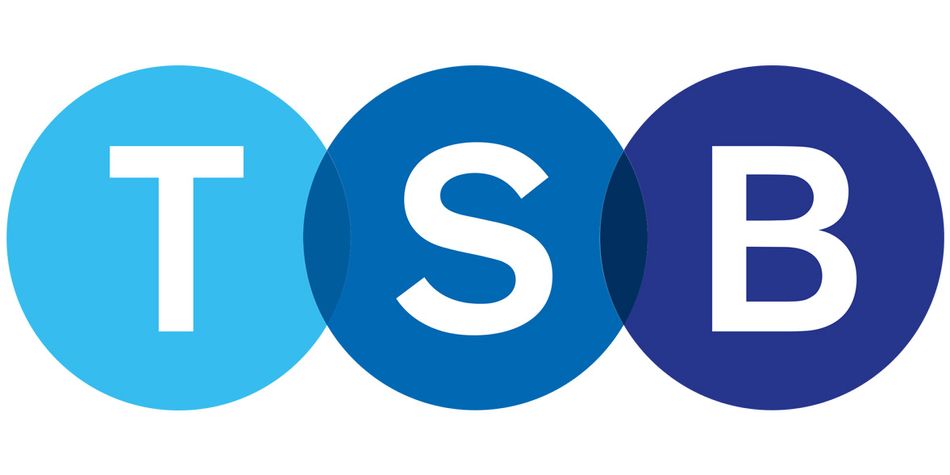TSB is a medium-sized lender, with an extensive range of deals for home movers, first-time buyers and those remortgaging.
Here, you can find out what real TSB mortgage customers thought about its service, what our expert analysis uncovered about its range of deals, and the best TSB mortgage rates on the market right now.
Please note that this article is for information purposes only and does not constitute advice. Please refer to the particular terms and conditions of a provider before committing to any financial products.
Why you can trust our TSB mortgage review
Real TSB customer views
We've asked 94 TSB mortgage customers about their experiences of the lender.
Expert mortgage rate analysis
We've analysed TSB's mortgage rates to work out if it's a lender that offers competitive deals.
Is TSB a good mortgage lender?
TSB
TSB placed in the top half of our customer satisfaction table. However, in our interest rate analysis, it scored below average, meaning other lenders were typically more competitive.
6=out of 21 mortgage lenders ranked on customer score (joint 6th)
To see how TSB compares to other mortgage providers, read our guide to the
best mortgage lenders.
Does TSB offer the best mortgage deals?
Which? analysed thousands of mortgages, using Moneyfacts data, over eight weeks in the summer/autumn of 2025. We compiled a series of top 10 cheapest deals tables based on a variety of borrowing scenarios, and counted how many times each lender featured in a table.
The average was five table appearances per week. TSB scored just below this, with an average of 4.4 appearances. This meant that for some mortgage scenarios, it offered competitive rates, such as on 75% LTV remortgages. However, our research found it was less likely to offer market-leading rates for first-time buyers and home movers during the time of the analysis.
You can see the mortgages TSB is currently offering to first-time buyers, home movers and remortgagers in the tables below.
To see how TSB compares with other mortgage providers, head to our guide to the best mortgage rates and deals, which is updated every day.
TSB mortgage rates for first-time buyers
Table notes: Data from Moneyfacts, updated daily. Customer score is based on a combination of overall satisfaction and likelihood to recommend the provider. The average customer score is 74%. The results are based on an online survey of 5,016 members of the public conducted in August/September 2025 and are representative of the GB/UK population (aged 18+). Providers must receive a minimum sample size of 40 for inclusion in the results. TSB had a sample size of 94.
TSB mortgage rates for home movers
Table notes: Data from Moneyfacts, updated daily. Customer score is based on a combination of overall satisfaction and likelihood to recommend the provider. The average customer score is 74%. The results are based on an online survey of 5,016 members of the public conducted in August/September 2025 and are representative of the GB/UK population (aged 18+). Providers must receive a minimum sample size of 40 for inclusion in the results. TSB had a sample size of 94.
TSB mortgage rates for remortgaging
Table notes: Data from Moneyfacts, updated daily. Customer score is based on a combination of overall satisfaction and likelihood to recommend the provider. The average customer score is 74%. The results are based on an online survey of 5,016 members of the public conducted in August/September 2025 and are representative of the GB/UK population (aged 18+). Providers must receive a minimum sample size of 40 for inclusion in the results. TSB had a sample size of 94.
How did customers rate TSB's mortgages?
We asked TSB mortgage customers about their experiences with the lender.
Here's how customers rated TSB in various areas of service:
Table notes: Star ratings are out of five. The results are based on an online survey of 5,016 members of the public conducted in August/September 2025 and are representative of the GB/UK population (aged 18+). Providers must receive a minimum sample size of 40 for inclusion in the results. The sample size for TSB was 94.
What do customers think about TSB?
The majority of comments from TSB customers were positive. One told us: 'Any problems I’ve ever had, they have dealt with brilliantly.' 'Another praised the app, describing it as 'easy to set up and very clear'.
Responses that focused on customer service were also generally positive.
Many customers spoke of a smooth mortgage process with no complications. One said the process 'works seamlessly and I’ve never had issues', while another commented: 'I have had no issues with TSB during the time I have held my mortgage.'
TSB mortgage lender FAQs
What types of mortgage does TSB offer?
When we checked in September 2025, there were 248 mortgages available from TSB. Most were fixed-rate deals, meaning your interest rate stays the same for a set initial period.
TSB mortgages had initial periods of two, three or five years.
A smaller number of mortgages offered by TSB were tracker deals, with initial terms lasting two years before reverting to TSB's standard variable rate.
How much could I borrow from TSB?
TSB doesn't publish its borrowing caps, but you can use its affordability calculator to check the size of a mortgage you qualify for.
Does TSB offer green mortgages?
TSB currently doesn’t offer preferential rates for energy-efficient homes. Instead, it offers £250 cashback for mortgages on homes with an A or B EPC.
How long can the mortgage term be?
All of TSB's mortgages allow a maximum term length of 40 years.
- Find out more: mortgage calculator toolkit - use our range of calculators to compare mortgage deals, work out how much you can borrow and more
Key Information
Why should you trust Which? research? We’re not influenced by third parties. We work entirely on behalf of you, the consumer – nobody else. See our statement of editorial independence


